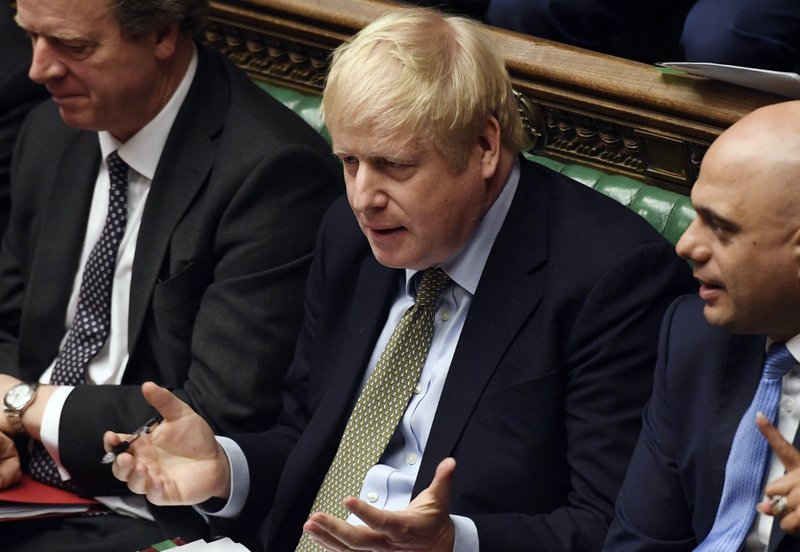LONDON -- British Prime Minister Boris Johnson's plans for the United Kingdom to leave the European Union hit a hurdle Monday when Parliament's upper chamber told the government to give EU citizens living in the U.K. physical proof of their right to remain after the country leaves the bloc.
The House of Lords voted by 270-229 to amend the government bill that paves the way for Britain's departure from the EU on Jan. 31 -- the first of three votes that went against the government.
The amendment says EU citizens living in Britain should be given a document confirming their right of residence. Currently, EU citizens can register online to confirm their "settled status," but they receive no physical proof.
Liberal Democrat Jonny Oates said the lack of a hard document could leave EU citizens "severely disadvantaged" in dealings with landlords and other officials.
The House of Lords is debating the government's Withdrawal Agreement Bill, which sets the terms of Britain's departure from the 28-nation EU. It must be approved by both houses of Parliament before Jan. 31 if the U.K. is to leave the EU on schedule and become the first nation ever to quit the bloc.
In addition to the vote on EU citizens' rights, the House of Lords approved two amendments intended to restrict the government's power to ignore European court judgments after Brexit without consulting U.K. courts first.
Monday's votes don't stop the bill from becoming law. The House of Commons has already approved the bill, and the elected lower chamber can overturn decisions by members of the House of Lords, most of whom either inherited their seats or were appointed to them. But the amendments mean the bill would have to return to the House of Commons later this week rather than automatically becoming law if it's passed by the House of Lords today.
Britain voted narrowly to leave the EU in a 2016 referendum, but as the years went on, U.K. lawmakers repeatedly defeated attempts by both Johnson and predecessor Theresa May to secure backing for their Brexit blueprints.
That changed when Johnson's Conservatives won a strong majority in a parliamentary election last month, giving the government the ability to override the objections of opposition parties.
A Section on 01/21/2020

